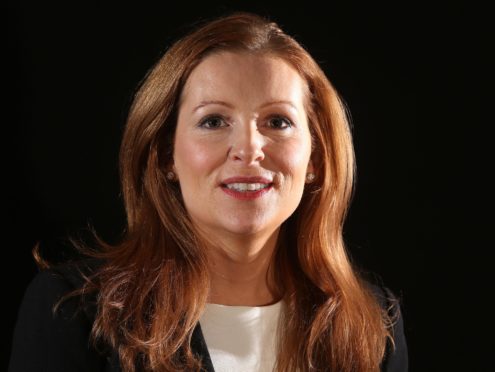The Scottish Parliament Justice Committee and Community Safety Minister Ash Denham yesterday slogged through a marathon five-hour session of amendments to the Children (Scotland) Bill aimed at updating Scottish family law.
As Scotland’s principal campaigners for the benefits of shared parenting to both children and to mothers and fathers we think there is work still to be done.
Scottish family life has transformed in recent decades with more fathers and mothers sharing more equally the pleasure as well as the daily tasks and challenges of parenting their children.
The old model of stay at home mother and breadwinner father is gone and it isn’t coming back. Nappy changing is unisex.
It has been happening the same all over Europe, partly driven by changes in the workplace but also by an evolving appreciation of what parenting is about.
Children’s experience and their expectations of their parents has also changed accordingly.
Unfortunately in Scotland when a relationship breaks down the expectations of how parenting will continue seem to revert back to those 1970s stereotypes whatever the reality of the parenting practice was before the divorce or separation.
While few break-ups are without pain most parents will attempt to at least collaborate in making the arrangements for both to continue as parents. They are divorcing each other, not their children.
Unfortunately, if the parents can’t reach agreement they are likely to look to the law to see what it can offer.
On separation, the children will usually have stayed with one parent in the former family home. The other, usually the father, will find himself making proposals to spend time with children and will quickly discover that it can be a bruising, unbelievably expensive and prolonged process that can often create entirely new difficulties between parents.
While successive Scottish governments have urged greater gender equality in most areas of personal life and public policy the assumptions underpinning our family law feel like they still prefer the old stereotypes.
We have run monthly support group meetings in Aberdeen for nine years. Fathers are in the majority but few meetings are male-only. We have mothers, grandmothers, new partners and sisters too.
What unites them is their shock and incredulity that there are so few incentives in the system to resolve disagreements and that safe and competent fathers find themselves having to prove their worth as parents in the lives of their children.
We hear over and over again, “I feel like I’m on trial having to prove the unprovable – that I love my kids, they love me. I’m safe and competent now just as I was before the separation.”
That marathon online meeting of the Justice Committee and Community Safety Minister yesterday worked their way through dozens of positive amendments that make changes to how the views of the children will be considered and regulating the work of professionals who make reports to a court.
But our concern all along has been that the system set up to protect the wellbeing of children from unfit parents is at the expense of the children whose parents are safe and competent and loving.
Often by the time a court determines that a parent is safe months, if not years, have passed and the fundamental parenting relationship has been changed if not damaged.
The Cross Party Group on Shared Parenting at the Scottish Parliament heard at its meeting last week from Marie-France Carlier, an experienced family judge in Belgium, where the law was changed in 2006 to reverse that impossible burden of proof. Belgian law says if one parent asks for equal parenting time the judge has to consider it and take evidence of why it might not be in the best interests of a child.
She told the group: “The main goal of the Belgian law is to benefit the child. The legislation aims to achieve this by maintaining a child’s relationship with both parents which is one of the main protective factors for children’s wellbeing during and after parental separation”.
Their change in the law 14 years ago was rooted in research that the quality of the parent-child relationship of children in joint physical custody is found to be similar to that of children from intact families.
Research around the world has replicated those findings that children do better in most areas of their life such as school, self-esteem and ability to form relationships in adult life when they have equal time or close to equal time with both parents.
In Scotland the fallback tends to be alternate weekends and maybe one weekday evening. The research also shows that children in shared parenting arrangements have fewer adverse life experiences such as drug or alcohol problems, teenage pregnancies or mental health issues.
The Children (Scotland) Bill will return for its full (Stage 3) debate after the summer recess. It will be the last chance for our MSPs to focus on separated parents as a resource for their children, not a complication. Let’s help parents work together and not against each other.
Ian Maxwell is the national manager of Shared Parenting
